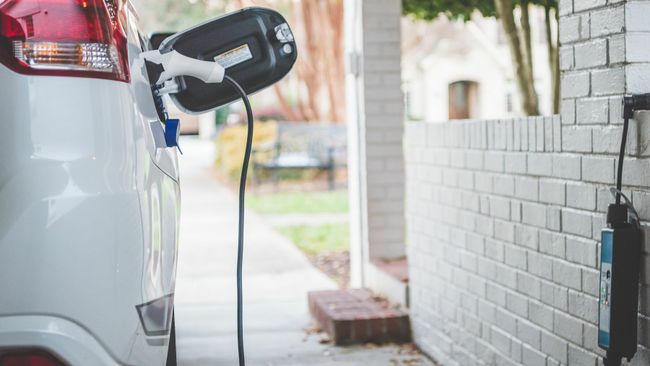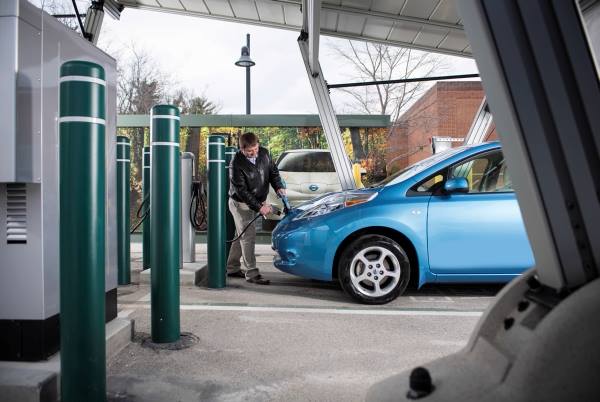Duke Energy is launching a new electric vehicle (EV) charging plan. The pilot program will allow customers in North Carolina to use up to 800 kilowatt-hours per month to power an EV at home for a fixed monthly fee in Duke Energy Carolinas service areas and Duke Energy Progress service areas. The EV Complete Home Charging Plan is designed to help the Tar Heel State move closer to net-zero carbon emissions.
“North Carolina has ambitious goals to reduce greenhouse gas emissions, and we’re supporting those efforts,” Kendal Bowman, Duke Energy North Carolina state president, said in a press release. “Increasing the numbers of EVs while reducing the number of gas-powered vehicles on the road will help our state move closer to carbon neutrality.”

Photo Courtesy Duke Energy
Duke Energy customers who own or lease an EV will receive a program invite directly from their vehicle’s manufacturer.
The enrollment window opened on Sept. 1, and the pilot program launches on Nov. 1 for enrolled customers. Currently, Duke Energy is collaborating with General Motors, Ford Motor Company, and BMW of North America as a part of the Open Vehicle-Grid Integration Platform.
It helps manage charging various EVs from multiple manufacturers in the most sustainable way. Each automaker inputs the time needed to power up each vehicle on the platform.
This information allows Duke Energy to measure how much energy each customer needs without installing second meters at customers’ homes or businesses. The power giant will call up to three demand response events each month to balance how energy is pulled for charging from the larger grid.
The platform is also owner-friendly and will increase the convenience of powering their vehicles by ensuring the car or truck is fully charged exactly when needed. Customers, who will pay a monthly fee for the service, can input the time their fully-charged EV is required each day.

Photo Courtesy Duke Energy
“The average EV owner is already saving about $1,000 per year on fuel costs compared to a traditional vehicle — a predictable monthly subscription charge on top of that is going to ensure predictable savings when charging,” Bowman added. “Beyond cost savings, EV charging at home tends to be convenient because drivers can leave the house with a fully charged vehicle and lessen the number of trips to public charging stations.”
The EV Complete Home Charging Plan is designed specifically to help Duke Energy get the power grid ready for rapid growth in the EV industry.
It will also help the company understand how and when usage is high to ensure the grid has suitable capacity at peak times.
“EV charging has the added benefit of flexibility, meaning charging can be managed — such as shifting charging to off-peak hours — which is important in limiting cost increases and mitigating peak demands,” Harry Sideris, Duke Energy’s executive vice president of customer experience, said in the press release.
“Duke Energy has been strategically planning and enabling the grid for a future with many more EVs on the road — and is also making data-driven investments to improve reliability, strengthen the grid, expand technologies, and provide customers with the intelligent information they need to make smart energy choices and save money,” he continued.





